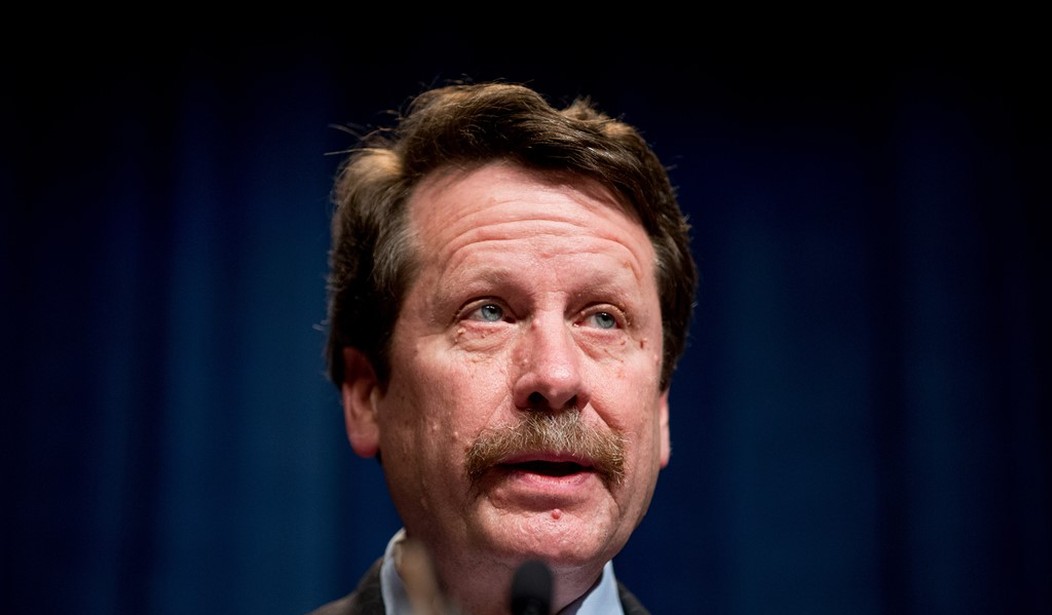And Joe Biden, by his own admission, only found out about it and the baby-formula shortage fourteen months later. Originally, the FDA and the White House insisted that no one knew about the whistleblower complaint about the Abbott Labs infant-formula production facility until October 2021, although FDA commissioner Robert Califf and other officials admit it got lost for several weeks after that.
Both the Wall Street Journal and ABC News, however, reports that the FDA had been made aware of it much earlier — in February 2021. Not only did OSHA notify both Abbott and the FDA about it immediately, Abbott delivered a formal response to both agencies in April:
A complaint filed under the U.S. Labor Department’s Occupational Safety and Health Administration’s whistleblower-protection program by a former Abbott employee in February 2021 alleged a host of problems at the company’s Sturgis plant. They included failing equipment in need of repair and formula released without adequate evidence that it was safe for consumption, the person familiar with the matter said.
Details of the complaint offer a fuller picture of the timeline leading up to the shutdown in February 2022 of Abbott’s plant in Sturgis, which has contributed to a severe U.S. baby-formula shortage. Abbott and the U.S. Food and Drug Administration already have come under fire in recent months for what lawmakers said was a slow response to problems in Sturgis, including allegations made in a subsequent complaint by the same person sent to the FDA in October 2021.
Labor Department officials provided the February 2021 complaint to Abbott as well as to the FDA that same month, according to the government official. Abbott submitted a formal response to the complaint two months later, according to the documents and the person familiar with the matter.
ABC’s follow-up confirms the WSJ’s reporting:
Abbott and the Food and Drug Administration were alerted to a whistleblower complaint about Abbott’s Sturgis infant formula plant as far back as February 2021, ABC News has confirmed.
This complaint, filed with the U.S. Labor Department’s Occupational Safety and Health Administration, alleges quality control concerns at Abbott’s formula plant in Sturgis, Michigan — a year before the company’s massive recall and shutdown in February 2022 following contamination concerns, which helped exacerbate a nationwide shortage in baby formula, according to sources familiar with the matter.
OSHA received a complaint from a whistleblower on Feb 16, 2021, and sent a copy three days later to the FDA and Abbott, according to a person familiar with the matter.
The complaint raises further questions about when both Abbott and federal health authorities first knew about quality and contamination concerns at the Sturgis plant, and why it took so long for action to be taken.
That directly contradicts testimony submitted to Congress by Califf last month. He told the House Appropriations Committee that the FDA didn’t get the complaint until October, and in fact that it wasn’t even mailed until then. Remember this attempt to deflect blame away from the White House non-response to the formula crisis?
In their prepared testimony released Tuesday evening, FDA Commissioner Robert Califf and several senior officials for the first time lay out a timeline of the agency’s response to reports last fall that infants had been hospitalized after consuming formula made at an Abbott Nutrition plant in Sturgis, Mich. And they say a whistleblower report alleging food safety problems at the plant, which was mailed in October, did not reach the FDA’s highest rungs until mid-February, despite being sent directly to then-acting Commissioner Janet Woodcock and others. …
The FDA timeline laid out in the prepared testimony acknowledges the FDA didn’t hold interagency discussions about potential supply chain disruptions until Feb. 14, three days before the Abbott Nutrition plant at the center of the current shortages shut down and issued a formula recall. And the agency didn’t notify the Agriculture Department, which oversees a critical federal nutrition program that purchases about half of the nation’s infant formula, about potential disruptions until a week before the Abbott plant shut down. The program, known as WIC, serves 1.2 million infants from low-income families. Abbott supplies nearly half of all infant formula provided through WIC state contracts.
Clearly, the OSHA tip was separate from the later communication, although it’s unclear whether it’s from a different source. Perhaps the same source sent it directly to Woodcock after the tip died at OSHA for several months, or maybe the Woodcock-directed tip came from someone else. Given the rational protections provided to whistleblowers, we probably won’t ever get an answer to that question.
But that’s really not the issue anyway. Whatever the explanation, Califf clearly misled Congress on when the FDA first got notified of the problem at the Abbott facility. Furthermore, it’s tough to swallow the idea that the FDA would have ignored an OSHA referral about a workplace-contamination problem at a formula producer, not to mention an official response to it by Abbott.
If Califf didn’t know about this complaint and response, that should prompt a demand to explain why he didn’t know even as late as his testimony to the House Appropriations Committee. If Califf did know about the problems at Abbott reaching the FDA in February 2021, he’d better explain why the FDA waited almost a year to take action — as well as why he just lied to Congress about the sequence of events.
At the same time, we can ask the Biden administration some of the same questions. Did no one really tell Biden about the formula-shortage until April, as he claims? That seems pretty tough to believe, especially given Abbott’s critical role in supplying safety-net programs like WIC. Someone’s lying a lot about this crisis, and perhaps a number of someones are at this point.









Join the conversation as a VIP Member